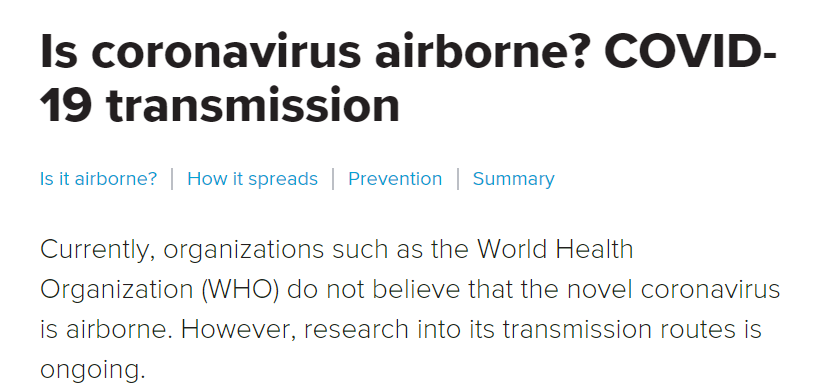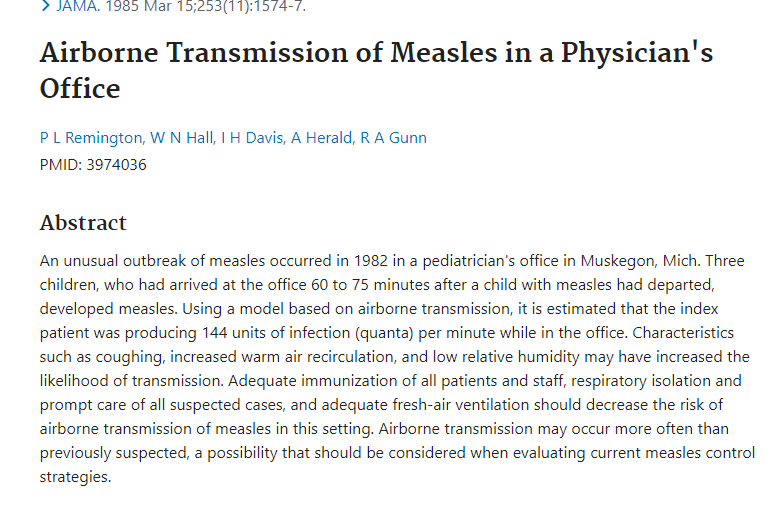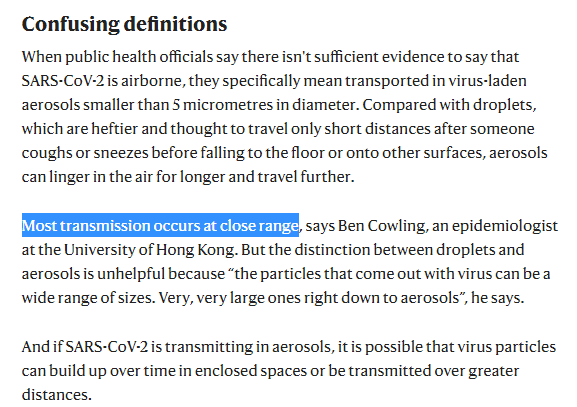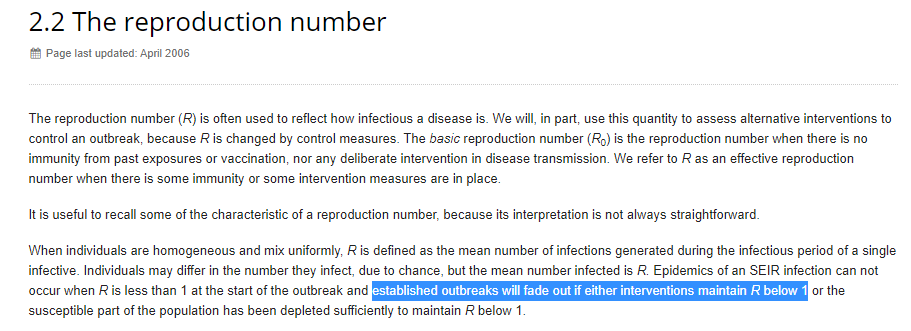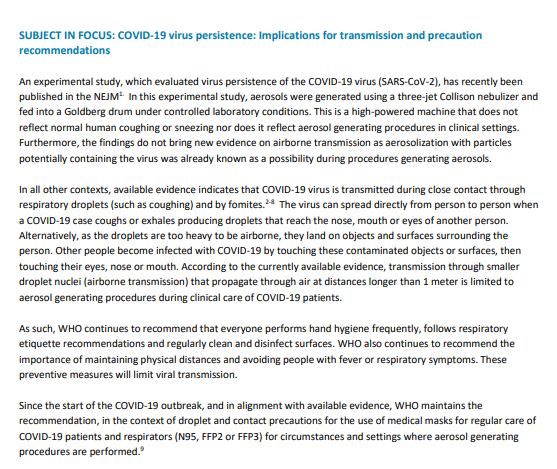1/13 There are still tons of news pieces every day about whether #COVID19 is & #39;airborne& #39;
This is understandable, because airborne=infectious=scary
But we know that the disease isn& #39;t airborne, at least not in the traditional sense
What& #39;s going on?
This is understandable, because airborne=infectious=scary
But we know that the disease isn& #39;t airborne, at least not in the traditional sense
What& #39;s going on?
2/13 The idea with airborne diseases is that they are far more infectious than non-airborne ones because people often catch the disease with only minimal or even no direct contact with infected people
3/13 There have been cases of measles demonstrating that a level of virus high enough to be infectious can stay in a room up to ~75 minutes after the person who is sick has left
4/13 And we know, from every investigation so far, that COVID-19 simply isn& #39;t infectious enough for this to be the MAIN route of infection
Measles, for example, is roughly 6x as infectious as COVID-19. Mumps is 4x
Measles, for example, is roughly 6x as infectious as COVID-19. Mumps is 4x
5/13 It& #39;s most likely that MOST COVID-19 infections are caused by close-range droplets - a sick person coughs or sneezes (or talks) and contaminates you or a surface which you then touch (called "fomites")
6/13 All of this has been known for some time, and is where, for example, the 1.5-2 metre spacing rules come from
7/13 Does this make the question about airborne spread entirely obsolete?
Not quite
There& #39;s still the pesky outliers to deal with
Not quite
There& #39;s still the pesky outliers to deal with
8/13 As I said, MOST infections are clearly not airborne
But, we& #39;ve also seen evidence that there is probably SOME level of airborne transmission - rare, perhaps, but it may happen
For the sake of argument, let& #39;s say it& #39;s 1% of infections
But, we& #39;ve also seen evidence that there is probably SOME level of airborne transmission - rare, perhaps, but it may happen
For the sake of argument, let& #39;s say it& #39;s 1% of infections
9/13 Think about it - if everyone& #39;s social distancing properly then MOST infections - all of the short-range ones - will be prevented
We& #39;ve seen this happen all over the world
But the 1% may not be reduced nearly as much by these measures
We& #39;ve seen this happen all over the world
But the 1% may not be reduced nearly as much by these measures
10/13 Thing is, that last 1% is also the hardest to get at. It requires even further investments - not just universal masking, but revising aircon, making long-lasting changes to office structures etc
It& #39;s quite hard to prevent us breathing the same air
It& #39;s quite hard to prevent us breathing the same air
11/13 And we don& #39;t NEED to prevent these infections (we might WANT to)
To stop the epidemic, the key is to reduce Reff below 1, and we have seen that this is eminently possible using social distancing, testing, contact tracing, and other measures
To stop the epidemic, the key is to reduce Reff below 1, and we have seen that this is eminently possible using social distancing, testing, contact tracing, and other measures
12/13 The marginal benefit to eliminating the possibility of ANY airborne spread is small, but the cost is big
Which is why even though there may be the occasional airborne case, it& #39;s not a huge issue for most governments and agencies
Which is why even though there may be the occasional airborne case, it& #39;s not a huge issue for most governments and agencies

 Read on Twitter
Read on Twitter

